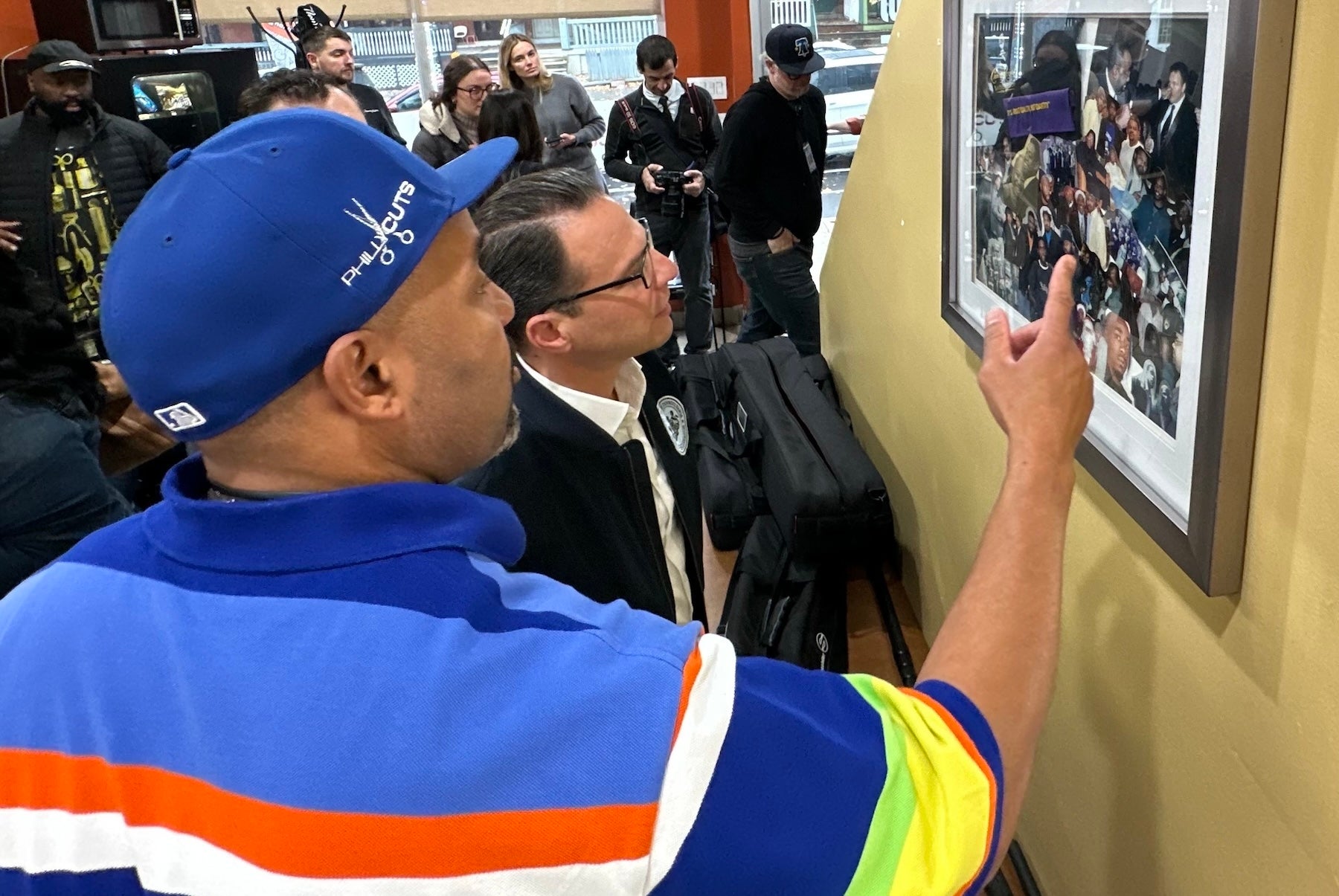Bussiness
Small games of chance in Pa. may be big business, but social clubs want bigger payouts

The Mechanicsburg Club donated nearly half a million dollars to community nonprofits over the past three years from its small games of chance proceeds. It’s a stunning amount coming out of the pockets of its nearly 2,700 members, but club officers believe the amount could be even higher.
The only thing holding them back is the state’s small games of chance law.
That law generally caps a licensed club’s single chance prize at $2,000 and weekly prizes to $35,000. Monthly prizes from raffles are capped at $15,000. It requires social clubs to split the proceeds from a game allowing them to keep 40% to cover their administrative costs and the rest must go toward public interest purposes.
Officers with The Mechanicsburg Club, a 130-year-old social club, would like to see the weekly cap on chance games bumped up to $100,000, which they say would allow them to keep up their donations to the various community organizations they support and special projects such as renovations to Mechanicsburg’s football field.
Increasing prize limits is one of several changes to the small games of chance law contained in legislation awaiting action by the General Assembly and there is indications some of them might see action this month. Legal small games of chance include raffles, 50/50 drawings and pull tabs.
“Small games of chance certainly benefit our local communities and possible changes will likely be discussed in June,” said Senate Republican spokeswoman Kate Eckhart Flessner.
Hearing changes might be coming to expand that law that originated in 1988 was welcomed by the Eagle Foundation, a nonprofit affiliated with Cumberland Valley School District.
The foundation’s executive director Bobbi Jo Gabrielson said The Mechanicsburg Club for years has donated small games of chance proceeds to support it in various ways including scholarships – 22 of them this year totaling a combined $47,500 – and other projects and programs in the district.
“We consider The Mechanicsburg Club a valued community partner,” Gabrielson said. “Not only do they fund some of our core annual services like the classroom learning grants, the mentoring program, scholarships, and summer reading booster sessions, but they are involved in attending events and serving on committees. What they do to assist students in furthering their education beyond high school is invaluable.”
Cumberland Valley High School senior Addison Firestone was presented with the Service Award scholarship funded by the Mechanicsburg Club by Eagle Foundation President, Shishir Chaudhari at a recent awards ceremony. The Mechanicsburg Club donated $47,500 to the Eagle Foundation this year to fund 22 scholarships.
Submitted photoSubmitted photo
Legislation in the hopper
A bill, sponsored by Sen. Devlin Robinson, D-Allegheny County, would allow for mobile payment options such as credit card, debit card, Venmo, or PayPal as a payment option to play chance games. The current law restricts it to cash or check.
“Younger donors don’t even know what a checkbook is,” said Anne Gingerich, executive director of the Pennsylvania Association of Nonprofit Organizations. “They don’t write checks or have cash. So what it does is it opens the donor pool to a larger group of donors.”
Another bill, sponsored by Rep. Sheryl Delozier, R-Cumberland County, would legalize social card games such as low-stakes poker games with prize limits at clubs.
Several other bills include changing the required distribution of the games’ proceeds to increase the percentage social clubs can keep to at least half. Proposed legislation that Rep. Tom Mehaffie, R-Dauphin County, plans to introduce addresses that. He would like to allow organizations to be able to keep 100% of the proceeds and decide for themselves what percentage to give away.
During the pandemic, the proceeds distribution restriction was waived to allow clubs to keep all of their chance game proceeds to help them stay afloat during those financially difficult times. He said, “But they were still donating to Little Leagues, softball groups and other charities.”
His proposed legislation also seeks to raise the weekly chance game prize limits to $250,000 and include some additional types of games not currently allowed in Pennsylvania.
Rep. Marci Mustello, R-Butler County, has introduced a separate bill that along with raising prize limits and upping the amount of proceeds organizations can keep to 60% would allow volunteer fire, ambulance, rescue or conservation organizations to raffle off prizes of up to $500,000 a year as well as increase other prize limits. Her bill awaits action in the House Gaming Oversight Committee.
Her concern rests heavily on helping volunteer fire companies from closing their doors particularly in communities that could not afford a paid fire department.
“We’re just trying to make it easier,” Mustello said. “It’s state government prohibiting them from making the money they need to survive.”
Jerry Ogoz, executive director of the Pennsylvania Fire & Emergency Services Institute, said his organization that represents the interests of emergency responders supports any change that would encourage more people to play the games, increase prize limits, and clear up confusion surrounding the legality of online fundraisers. He also is watching legislation related to taxing and regulating games of skill, which is a separate form of gambling from small games of chance.
“Everybody is going to want a chunk of that funding’ from skill games, he said. “We would anticipate a chunk of that for emergency services companies.”
To illustrate the need for money for emergency services, he said a basic fire engine that cost $500,000 about five to seven years ago now costs $1 million. He said that leaves many smaller fire companies only able to afford used firetrucks.
Funding community needs
Not only are fire trucks expensive so are new fire stations – and that is another community project that The Mechanicsburg Club has pledged to support from proceeds from its members’ play on its chance, lottery and skill game offerings available at its establishment.
Among the others beneficiaries of their proceeds are the Arc of Cumberland and Perry counties, Meals on Wheels, the Simpson Library, Wildcat Foundation which supports Mechanicsburg Area School District, and several local fire and police departments.
Club officers are confident they would be able to generate more money from higher prize limits if the law were to allow it. They aren’t that enthused about other changes lawmakers seek such as allowing members to use credit cards or other mobile payment methods to play the games or live streaming raffles. They describe most of their members as “old school” who prefer simpler ways to test their luck while giving back to the community.
If the club were able to generate more money from changes in the law, Gabrielson of the Eagle Foundation would welcome it.
She said, “We never turn away a bigger check, that’s for sure.”
Jan Murphy may be reached at jmurphy@pennlive.com. Follow her on X at @JanMurphy.









